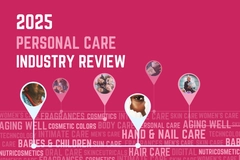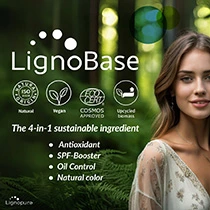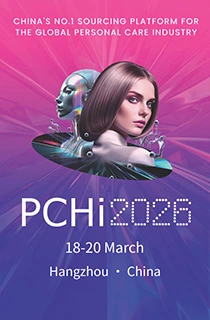Peanut-sourced resveratrol emerges as natural solution for hair growth and anti-hair loss treatment

04 Sep 2024 --- A study in Cosmetics looks at resveratrol-rich peanut callus extract to prevent hair loss and promote growth. The bioactive compound is presented as having the potential to be used as an alternative treatment to chemicals in the development of hair care products.
The paper notes, “Resveratrol has been found to stimulate the growth of human dermal papilla cells and protect them from oxidative damage. The topical application of resveratrol effectively enhanced hair growth and stimulated the transition of the hair cycle from the resting phase into the active growth phase (anagen phase).”
The study, which included in vitro and clinical trials, focused on comparing the effects of different peanut-derived extracts — specifically from seeds, sprouts and callus tissues — on human dermal papilla cells, which are noted for their important role in hair growth.
Out of the three, the peanut callus extract had the “most significant” amount of resveratrol and the greatest effect on the proliferation of human dermal papilla cells, causing a 20.44% increase in cell growth as opposed to the extracts from seeds (8.45%) and sprouts (11.99%). This suggests “potential to stimulate hair growth and prevent hair loss, making it an alternative bioactive option for cosmetic applications.”
The paper authors acknowledge current treatments for alopecia including pharmaceutical alternatives like minoxidil, finasteride and anti-androgens, or surgical hair transplant surgeries and laser therapy. However, these methods can have side effects, be expensive and require a long-term commitment.
The scientists also believe it is possible to synthesize resveratrol when peanut sprouts germinate and develop a callus. The callus extract was examined in a clinical context after receiving attention for having a high resveratrol content of 191.97 ppm.
A 12-week randomized, double-blind, placebo-controlled trial with 60 participants found that a hair serum containing peanut callus extract reduced hair shedding by 66.98% and hair fall during combing by 83.92%.
The study compared the results with pure resveratrol, seeing comparable results and thus showcasing the extract’s potential as a bioactive ingredient in hair care products.
 Peanut callus (C) extract showed significant hair growth-promoting properties in clinical trials (Image credit: Study).Peanut callus claims
Peanut callus (C) extract showed significant hair growth-promoting properties in clinical trials (Image credit: Study).Peanut callus claims
Apart from promising hair growth, the peanut callus extract showed a potent inhibitory effect on 5α-reductase (5-AR), an enzyme associated with androgenic alopecia, also known as male pattern baldness.
The study found that the callus extract inhibited 5-AR activity by 27.83%, a potency similar to that of standard resveratrol, which recorded a 33.22% inhibition.
The clinical trial also demonstrated the extract’s capacity to improve the expression of growth factors essential for the development of hair. The callus extract increased the levels of growth factors linked to the anagen phase of hair growth, including hepatocyte growth factor, keratinocyte growth factor and insulin-like growth factor 1 (IGF-1).
This enhancement suggests that the extract not only promotes hair growth but also improves the overall health of hair follicles.
 Resveratrol-rich peanut callus extract shows potential as a natural 5α-reductase inhibitor, aiding in the prevention of hair loss.Cosmetics applications
Resveratrol-rich peanut callus extract shows potential as a natural 5α-reductase inhibitor, aiding in the prevention of hair loss.Cosmetics applications
The study’s results indicate that peanut callus extract has the potential to be a useful component in the personal care and cosmetics sectors due to its high resveratrol content and demonstrated effectiveness in encouraging hair growth and decreasing hair loss.
Its ability to naturally inhibit 5-AR and stimulate hair follicle activity is presented as a promising alternative to conventional hair loss treatments, which often have side effects and require long-term commitment.
The study suggests peanut callus extract potential could be further explored in future research and product development, especially in formulations intended to address androgenic alopecia and hair thinning.
In industry developments, Aveda released a botanical-boosted follicle-strengthening hair care line to thicken hair, which features resveratrol.
Anti-aging skin care innovator Amruth Group unveiled a “breakthrough” cream formulated with stabilized red grape resveratrol.
Research by New York University, US, and Mary Kay found that combining resveratrol, niacinamide and 3 mm GHK decreases the harmful impacts of rural particulate pollution in human keratinocytes (the primary cell type in the epidermis).
By Venya Patel












